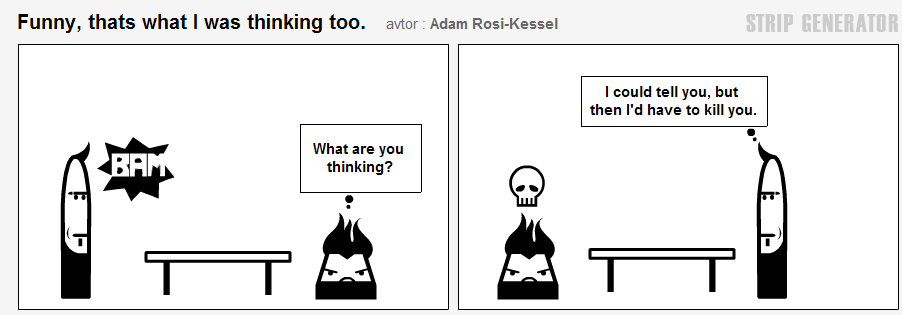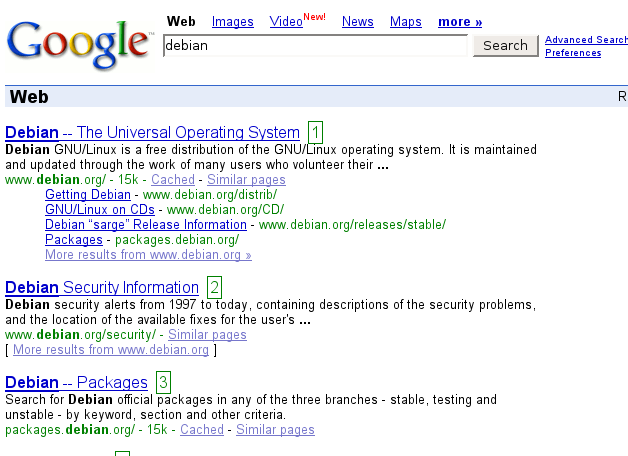The last time I made any serious contributions to Wikipedia was back in 2001 or 2002. The community was exciting, friendly, and welcoming, and I enjoyed spreading the word as most non-technical people I knew had never heard of wikis or Wikipedia. Since then, I may have corrected the occasional typo or fixed a legal error, sometimes anonymously and sometimes under my account (apparently I “clarified the 13(c) protective arrangement issue” in the Urban Mass Transportation Act of 1970 back in the Fall of 2003, although I have no recollection of having done so), but I hadn’t started any new entries since the early days.
At a recent presentation I attended by Sun’s Hal Stern, I learned that his eating club (Colonial Club) at Princeton University has a Wikipedia entry (as do all the other eating clubs). On further investigation, I learned there were no entries for any of the student cooperatives or other upperclassman eating options. To the uninitiated, it may be hard to understand why this matters beyond the insular Princeton community, but — suspend your disbelief just for a moment — the eating clubs have been called Princeton’s “peculiar institution” (a side-long reference to slavery) and have a storied and controversial history going back at least to the 1870’s (see, for example, this summary of the historical record from 1888-1993). It seemed to me that omitting the student cooperatives was akin to having a Wikipedia article on political parties that includes links to both the Republican and Democratic parties but leaves out any mention of the Green Party. Of course, the Green Party doesn’t wield the influence of either of the main parties, but its existence provides insight both into the American political system and the character of the two main parties. If no mention of the Green Party were included in Wikipedia, a foreign researcher attempting to learn about the American party system would come away with an incomplete and misleading understanding. The fact that the Green Party has not been particularly successful nationwide is, itself, interesting, useful, and relevant information. Although I wouldn’t pretend Princeton is as important or interesting as the American political system, it’s still a subject of scholarly investigation, and a topic that a fairly significant number of people are interested in learning about.
I thought I would start basically a stub article for the Two Dickinson Street Co-op and spend a couple of days building it out and asking knowledgeable experts to contribute and add sources.
Within a few seconds after I created the article, however, it was “speedily” deleted. A bit surprised, I tried to start an explanation as to why the entry warranted at least consideration for inclusion, and the article was deleted again and I found this message on my “talk” page:

This is your last warning.
The next time you vandalize a page, you will be blocked from editing Wikipedia. Diez2 14:55, 9 November 2006 (UTC)
I had gone from citizen to felon in two minutes flat!
There then ensued several attempts to at least allow a debate on the deletion, but the article was unilaterally speedily deleted several times by several different editors. Even after one admin restored the article as not appropriate for “speedy deletion,” another admin stepped in and speedily deleted it again. I received some fairly acerbic retorts to my attempts — e.g. this: “We don’t have a page for every club in the world. If you want free web-hosting check out Myspace or usenet. Also anonymous postings do not make a topic notable or important.” (I’m not sure why he accused me of posting anonymously — I didn’t. Also, does “usenet” offer “free web-hosting?”) Finally, the deletion of the article was converted from a “speedy deletion” to a nomination as an “article for deletion” (‘AfD’), which allows at least for some discussion on the topic.
The debate is ongoing — see it here — and some of the comments continue to be fairly corrosive. For example, one editor wrote:
Another editor called the debate a “pointless waste of time” over a “vanity article,” although I can’t find that comment any longer.
I admit that I created the article without knowing much about the process, and certainly with little understanding of the numerous acronyms, flags, and the several different ways an article can be killed. Apparently, I didn’t contest the speedy deletion properly, although it wasn’t clear to me from the deletion notice exactly what I was supposed to do, and I assumed the restoration of the article by another admin meant that it would persist for at least a few days. I thus deserve some of the blame for not doing more pre-posting diligence, but I was relying for the most part on my 2001-2002 experience where you could create an article, spend a few days improving it, invite others to contribute, etc., and articles with a colorable argument for inclusion would generally stay in.
It seems the new Wikipedia is a much less kind and less gentle Wikipedia. As another participant in the process wrote to me:
This whole situation is so strange. It makes me feel like I just stumbled into somebody else’s trench warfare. The defenders of notability! I wonder how long the constant vigilance of volunteers will hold out…
Of course, a similar phenomenon has occured with many open source projects. Initially, the doors are wide open and everyone’s contributions are, if not welcome, then at least tolerated. I suppose it is a sign of Wikipedia’s success that the front gates are locked so tightly. Still, I wonder how many potential good faith contributors are now permanently alienated by an initial bad experience such as this one, and whether Wikipedia will ultimately suffer from it. Low barriers to entry have traditionally been a key element to attracting participants to peer production efforts, but they seem to break down in direct relationship to the project’s external importance.
Incidentally, Stern’s edit to the Colonial Club entry, mentioning F. Scott FitzGerald’s characterization of the club, was quickly reverted by another editor as “nonsense.”

